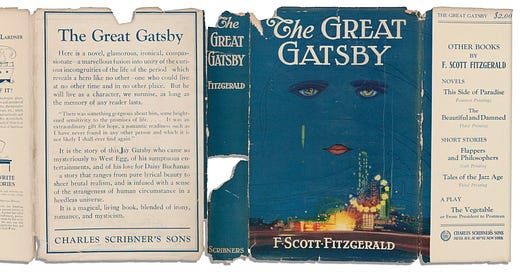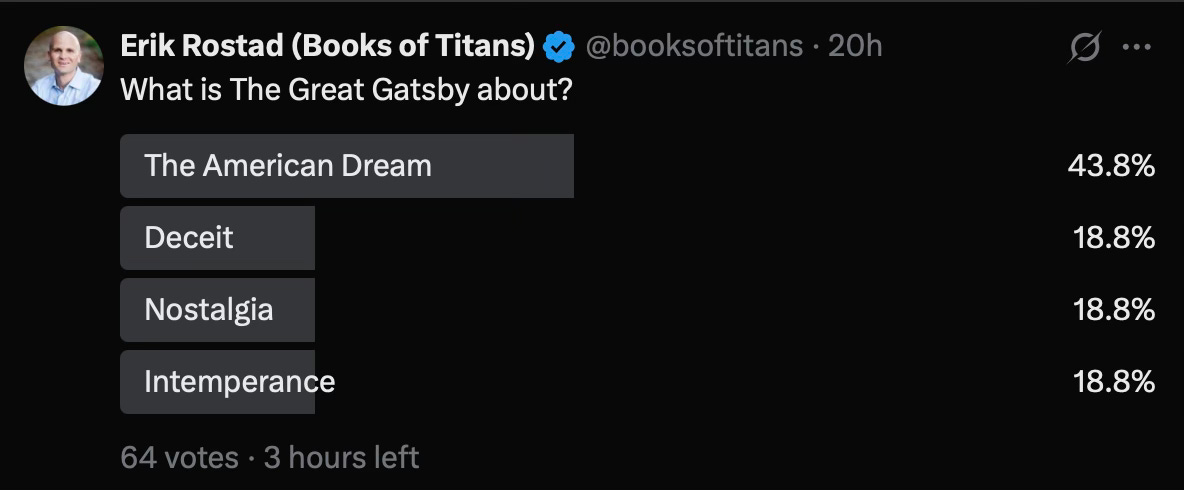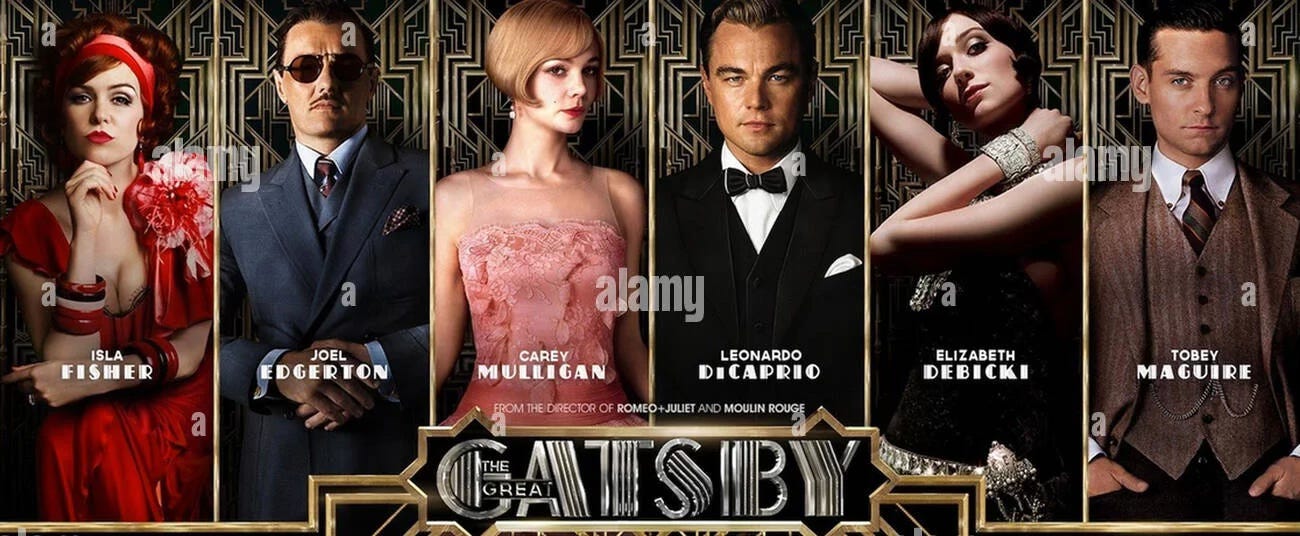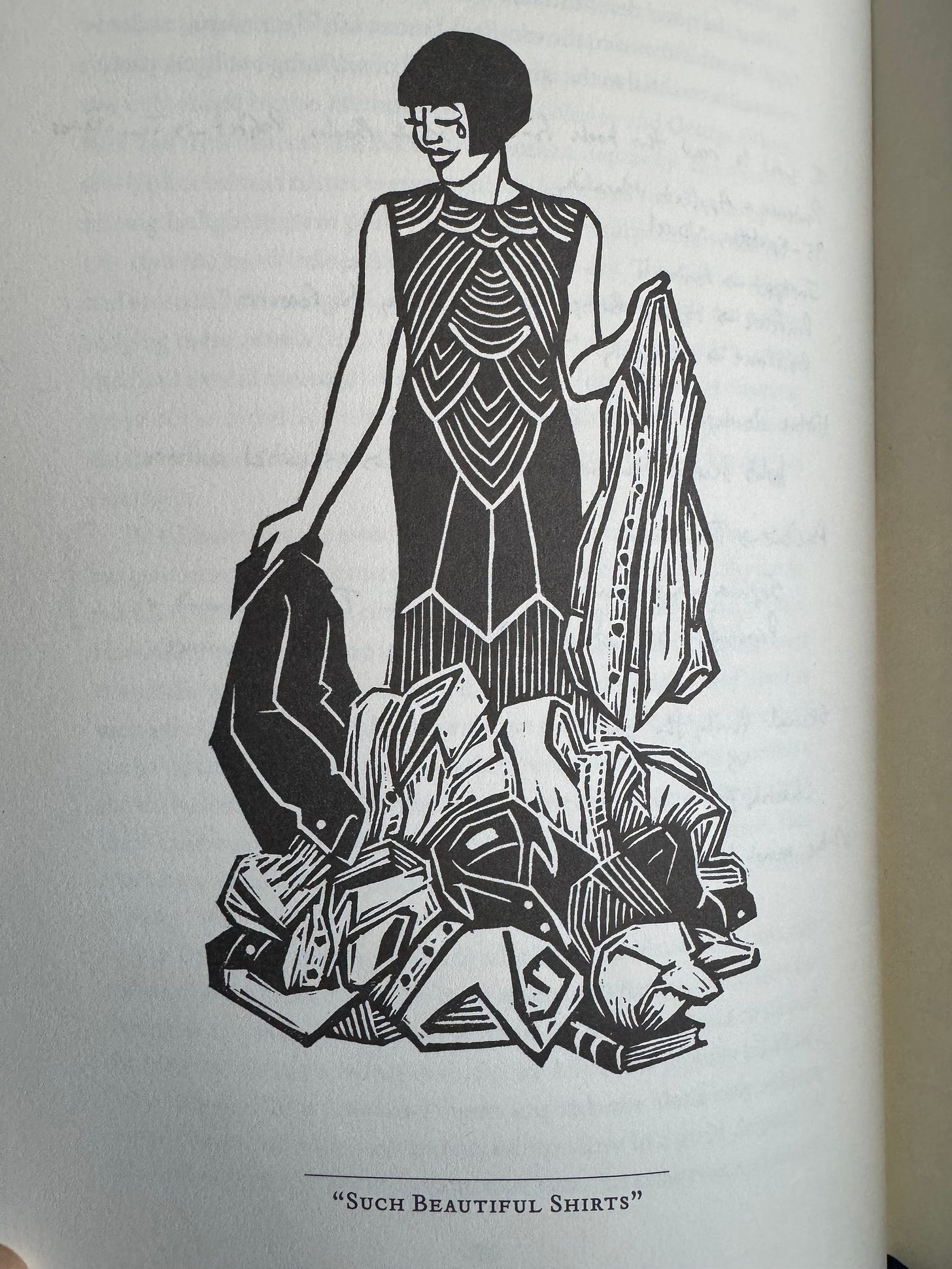I ran a Twitter X poll yesterday asking What is The Great Gatsby about? I was surprised at the results:
Hephzibah Anderson has said about the book:
“Pick it up at 27, and you'll find a different novel to the one you read as a teenager. Revisit it again at 45, and it'll feel like another book altogether.”1
I’ve read the novel three times, once as a teenager, a second time in June 2020, and a third time in April 2025, in my 45th year of life. I hated the book the first time I read it, mainly because it was required reading. The second time I read it, I understood it as a book about nostalgia, Gatsby’s pining for a past that was no longer possible. The third time I read it, I marveled at the economy and beauty of the prose.
But it’s the nostalgia theme that sticks out most in my mind. It’s a powerful emotion or feeling I know well and encounter it at the most random times. It’s funny, I mentioned this in a Great Gatsby reading group I led last night and three of the women said their husbands spoke often of nostalgia but that the women did not see that as the primary idea in Gatsby. In fact, these three women said their experiences of nostalgia were rare or nonexistent and that they had no connection to that line of thinking from the novel. I’m wondering if that’s a difference experienced by you as well (please let me know in the comments).
That’s obviously not the only thing the book is about. As Hephzibah states above, this is one of those books that changes as you read it throughout your life. It’s the type of book that teaches you about yourself as you encounter it. And as Fitzgerald has famously said,
"Of all the reviews, even the most enthusiastic, not one had the slightest idea what the book was about."2
Helen of Troy
One written response to the Twitter question above was to view Daisy as “The seduction of Helen of Troy to the Western Coast of the Atlantic.”3 I thought that was an intriguing way to consider Daisy and I will be giving that some thought.
The Movie
I watched The Great Gatsby movie (2013) a few nights ago. I was particularly struck by the soundtrack. While Gershwin’s Rhapsody in Blue appeared, most of the music was modern. All of the visuals, costumes, cars, and settings were 1920s but the music was early 2000s. I thought it made a compelling connection between the roaring 20s and the 2020s. It connected Jay Gatsby to Jay-Z. Have we learned any of the lessons from this book?
Daisy
When I think of Daisy, I think of desire. Not hers particularly, but the desire she elicits from others. Nostalgia is a form of misplaced desire and this is a book full of examples.
Intemperance
In her book, On Reading Well, Karen Swallow Prior highlights a virtue/vice pair found in Gatsby: temperance/intemperance. She says “The Great Gatsby interrogates, eerily and prophetically, the reckless excesses of American life.”4 Temperance deals with self-control in the area of desires and is “the virtue that inclines us to desire and enjoy pleasures well.”5 The youngest member of last night’s reading group highlighted the lack of any moral foundation in the main characters. Their desires were not grounded in anything whatsoever except their fleeting desires. The end is death and destruction.
The Antidote to Nostalgia
The Great Gatsby contains a fantastic critique of nostalgia. At the end of Chapter 5, the narrator Nick Carraway says the following:
“No amount of fire or freshness can challenge what a man will store up in his ghostly heart.”6
A Bible verse immediately came to mind when I read this:
“Eye hath not seen, nor ear heard, neither have entered into the heart of man, the things which God hath prepared for them that love him.”7
There is a limit to the promise of nostalgia, of a desire for the past, a desire for the unattainable. The fantasy continues on a path further and further from reality. Its end is death. There is a path that mankind cannot fathom but the nostalgic path can only disappoint.
Want to Discuss Gatsby?
If you’d like to join an online discussion about Gatsby this week, simply become a paid subscriber to this Substack. We’ll be meeting this Wednesday at 2pm Central Time.
100 Years
The Great Gatsby was published on April 10, 1925. Last week was the 100th anniversary.
Comforting
I find The Great Gatsby oddly comforting despite the death, destruction, and discord. I’m not sure what to do with that. How did Fitzgerald manage to leave me with a sense of hope amidst the hopelessness of the story?
Ned Bustard
I love this illustration by Ned Bustard found in Dr. Prior’s On Reading Well.
What are your favorite observations from The Great Gatsby?
https://www.bbc.com/culture/article/20210209-the-worlds-most-misunderstood-novel
https://www.bbc.com/culture/article/20210209-the-worlds-most-misunderstood-novel
https://x.com/miltonappl3/status/1911788115225624748
Karen Swallow Prior, On Reading Well: Finding Wisdom in Great Literature (Grand Rapids, MI: Brazos Press, 2018), 56.
William C. Mattison III, Introducing Moral Theology: True Happiness and the Virtues (Grad Rapids: Brazos, 2008), 76.
F. Scott Fitzgerald, The Great Gatsby (New York: Scribner, 1925), 96.
1 Corinthians 2:9, King James Version.








